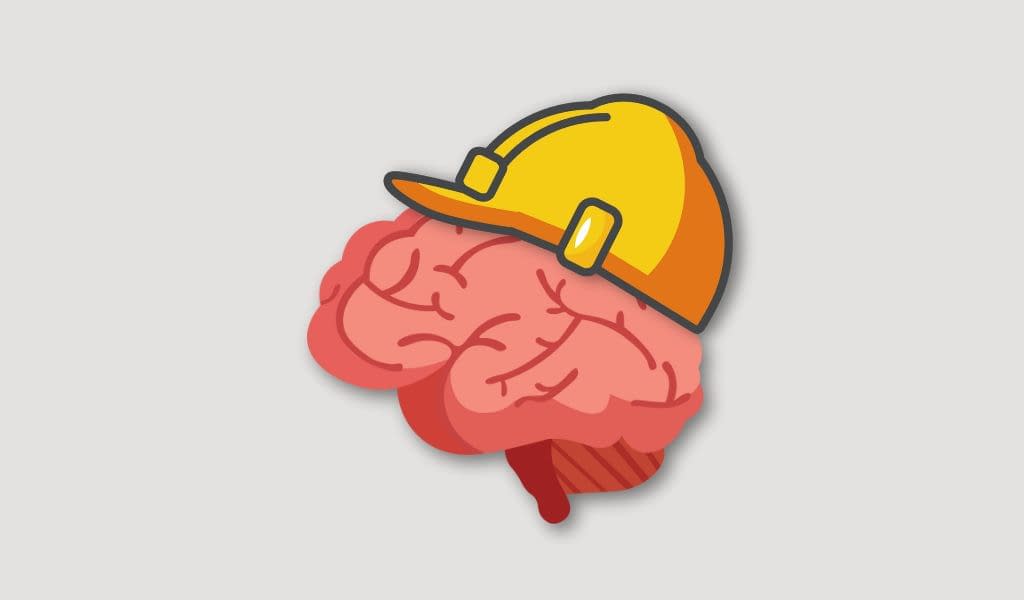When we experience persistent pain, things become even more complicated. Our body’s alarm system becomes hyper-sensitive. Think of it like learning to ride a bike or learning to play a sport: it starts out difficult to do, but the more you practice, the easier it becomes.
This is because our brain is forming new pathways, and with more repetition, those pathways become second nature. It’s the same with pain. The more we experience pain, the more we use the same pathways, making the pathways easier to travel. We call this sensitisation, meaning our pain system has become over-protective or stuck in “overprotection mode”.
If the brain gets stuck in overprotection mode, through misinterpreting signals or becoming oversensitive, it creates unhelpful persistent pain signals. Lots can contribute to this, like previous experiences or trauma, and even personality type.
In overprotection mode the brain also signals the body to go into overprotection mode too. We tighten muscles hold tension in nerves and joints and become stiff and immobile……an overprotective body. This contributes to pain too.
“Nerves that fire together, wire together”
When we have persistent pain, our pain can be triggered easily. Sometimes just a gentle touch to the area that has been painful for many years can trigger severe pain. In the medical world, we call this allodynia. There’s no real danger or threat—it’s just a gentle touch—but because our central nervous system has become hypersensitive, we feel severe pain.
It’s a little bit like having a faulty house alarm. Normally, the alarm is set when you leave the house, and it only goes off if there’s a real threat, like a break-in. But in the case of a sensitised pain system or overprotection mode, the alarm system becomes so sensitive that even a spider crawling across the window could set it off!
Another way of looking at it is to think of it like an annoying, demanding boss. Imagine your brain is the boss and the different areas of your body are the different departments in the company. Your back is the finance department, and it starts to make some mistakes. At first, the boss pays a little bit of attention to it. The more mistakes the department makes, the more the boss is on the lookout for mistakes. Eventually, the boss is hovering over the finance department, constantly watching, which only leads to more mistakes (more pain).
We can also think of it as an overprotective parent. The parent has their child’s best interests at heart, and are trying to protect them. The child had a couple of falls when they were learning to walk, but now whenever the child tries to walk they pull too hard on the toddler reins, and the child falls over. The parent has become overprotective and is no longer helping the child, they are hindering them.
Feeling severe pain so regularly can be scary and can make you worry that something is seriously wrong, but this is not the case.
The good news is, there are things we can do to help to desensitise our central nervous system and make it less overprotective.











